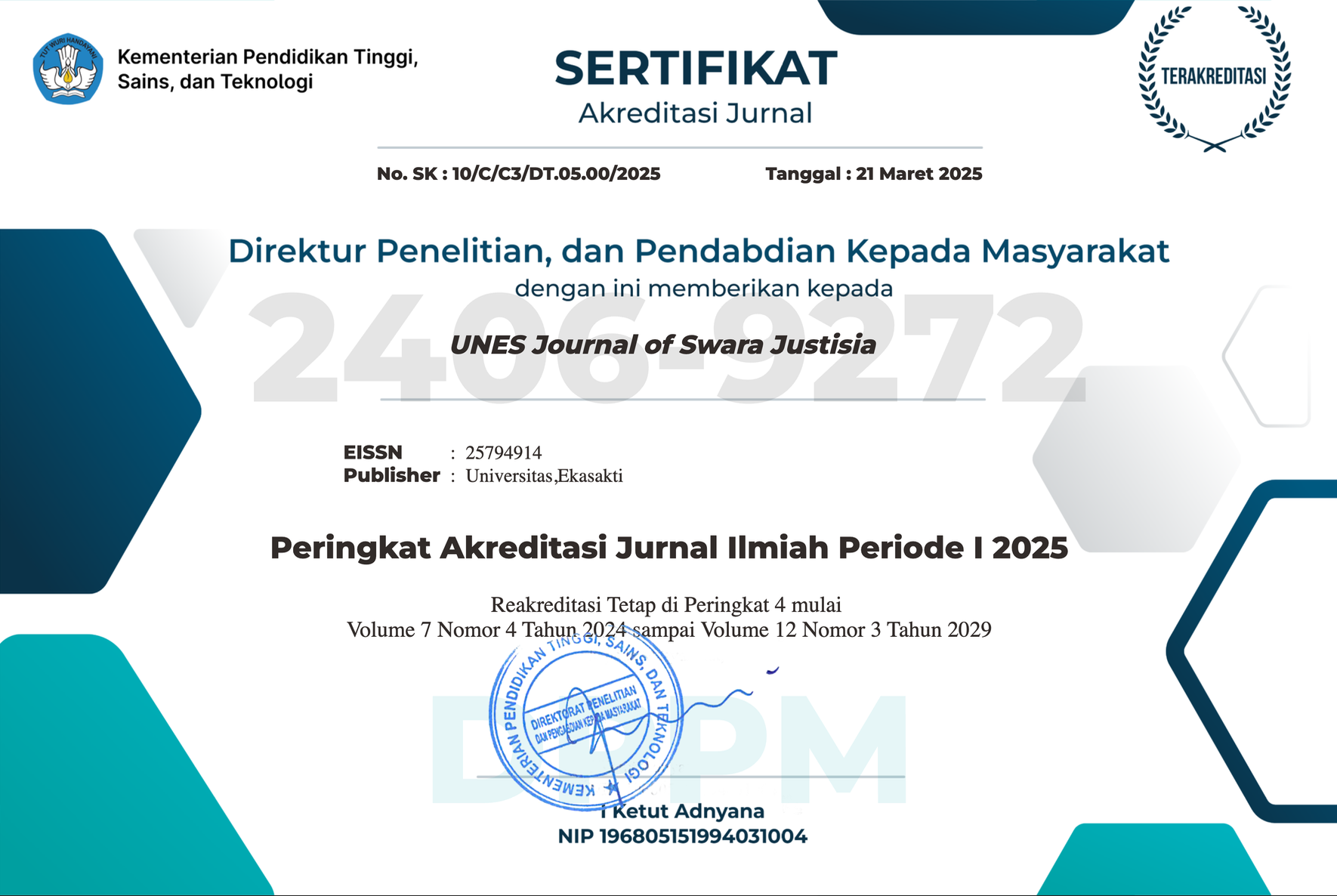KONSEPSI PENGATURAN PENENTUAN BATAS WAKTU PENYIDIKAN TINDAK PIDANA UMUM DIKAITKAN DENGAN HAK TERSANGKA DALAM HUKUM ACARA PIDANA
Downloads
Article 50 of Law Number 8 Year 1981 regarding the Criminal Procedure Code provides for the protection of the human rights of suspects for immediate investigation. the strict conception of the Criminal Procedure Code concerning the deadline of investigation resulted in legal certainty. The problem is the concept of setting the deadline for the investigation of current and future criminal acts. Specification of this research is analytical descriptive research with normative juridical approach. The result of the study states that the deadline for investigation is not determined in a limited manner in the Criminal Procedure Code. Article clause which implies the deadline of investigation is Article 24, Article 106 on the obligation of the investigator to immediately conduct investigative action. Article 109 paragraph (1) concerning notification of implementation and termination of investigation to the prosecutor. The deadline for investigation can be found in Kapolri Regulation no. 12 Year 2009 on Supervision and Control of Criminal Case Handling in Police Environment. Secondly on the draft Criminal Procedure Code has been confirmed by the deadline of investigation. The Judge of the Preliminary Examiner is authorized to assess the course of the handling of the case. In Article 12 of the Criminal Procedural Laws the transfer of investigation to the public prosecutor shall not be responded to by the investigator. Furthermore, in Article 13 paragraph (1), Article 15 and Article 88 paragraph (1) s / d paragraph (4).
Penulis yang mempublikasikan manuskripnya di jurnal ini menyetujui ketentuan berikut:
- Hak cipta pada setiap artikel adalah milik penulis.
- Penulis mengakui bahwa UNES Journal of Swara Justisia (UJSJ) berhak menjadi yang pertama menerbitkan dengan lisensi Creative Commons Attribution 4.0 International (Attribution 4.0 International CC BY 4.0).
- Penulis dapat mengirimkan artikel secara terpisah, mengatur distribusi non-eksklusif manuskrip yang telah diterbitkan dalam jurnal ini ke versi lain (misalnya, dikirim ke repositori institusi penulis, publikasi ke dalam buku, dll.), dengan mengakui bahwa manuskrip telah diterbitkan pertama kali di UNES Journal of Swara Justisia (UJSJ).
















